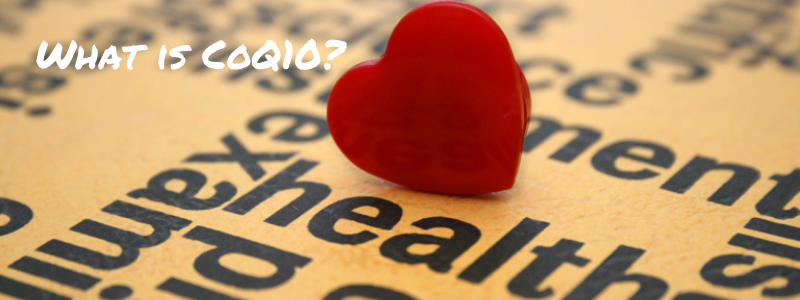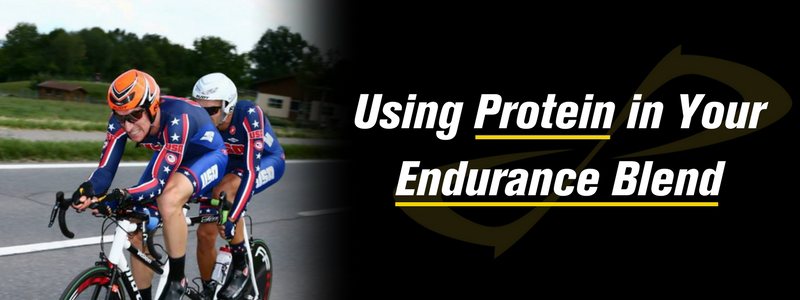What is CoQ10?
- 22 Feb 2016

What is CoQ10? Coenzyme Q10, or CoQ10, is naturally made by our bodies and found within every cell of the human body. It is a substance similar to that of a vitamin and our cells use it to produce the energy needed for cell maintenance and production. As it functions as an antioxidant, CoQ10 can protect the body from damage caused by harmful molecules. Additionally, CoQ10 can boost energy and speed up the recovery time from intense endurance efforts. Just as within our bodies, small amounts of CoQ10 are naturally present in many foods, but can be found at much higher levels in foods like peanuts, soy oils, mackerel, sardines, and “organ meats” like hearts, liver, or kidneys.
As we grow older, our bodies’ natural ability to produce CoQ10 diminishes, meaning the level of CoQ10 present within our cells decreases with increased age. Additionally levels of CoQ10 are notably lower in patients with a wide range of diseases, genetic disorders, and those taking certain medications. A person with heart failure will already have low levels of CoQ10 due to their health issues, but the statins used to treat heart failure also block the bodies’ ability to produce CoQ10. Therefore, it is common for patients placed on a statin to also be encouraged to take CoQ10 as a supplement for energy and heart health. CoQ10 levels within white blood cells, plasma, and platelets have been demonstrated to increase with supplementary oral administration of the substance, and these increased levels have demonstrated a positive effect on heart performance in ischemic heart disease, and congestive heart failure, as well as lowering blood pressure.
CoQ10, a naturally occurring enzyme found within your body’s cells, is used by our cells to produce the energy that is needed for cell regrowth. CoQ10 is more and more frequently being used a nutritional supplement, much like a daily vitamin, due to its’ inherent antioxidant properties and promising benefits in treating diseases in humans. Studies show, that when taken orally on a daily basis, CoQ10 can help to slow, improve, or even reverse the symptoms of various cardiovascular diseases. Less research has been done on diseases outside of heart health, but current studies show patients with illnesses ranging from Alzheimer’s and Cancer to Diabetes and Parkinson’s may benefit from a daily dose of CoQ10.
Sources
Chao, J., Leung, Y., Wang, M., Chuen-Chung Chang, R. (2012). Nutraceuticals and their preventive or potential therapeutic value in Parkinson’s disease. Nutrition Reviews, 70(7), 373-386. doi: 10.111/j.1753-4887.2012.00484.x
Cicero, A. F. G., Borghi, C. (2013). Evidence of clinically relevant efficacy for dietary supplements and nutraceuticals. Current Hypertension Report, 15, 260-267. doi: 10.1007/s11906-013-0333-8
Fotino, A. D., Thompson-Paul, A. M., Bazzona, L. A. (2013). Effect of coenzyme Q10 supplementation on heart failure: A meta-analysis. American Journal of Clinical Nutrition, 97, 268-275. doi: 10.3945/ajcn.112.040741
Gao, L., Mao, Q., Cao, J., Wang, Y., Zhou, X., Fan, L. (2012). Effects of coenzyme Q10 on vascular endothelial function in humans: A meta-analysis of randomized controlled trials. Atherosclerosis, 221, 311-316. doi: 10.1016/j.atherosclerosis.2011.10.027
Hidaka, T., Fujii, K., Funahashi, I., Fukutomi, N., Hosoe, K. (2008). Safety assessment of coenzyme Q10 (CoQ10). Biofactors, 32(1-4), 199-208.
Kumar, A., Kaur, H., Devi, P., Mohan, V. (2009). Role of coenzyme Q10 (CoQ10) in cardiac disease, hypertension and Meniere-like syndrome. Pharmacology & Therapeutics, 124, 259-268. doi: 10.1016/j.pharmthera.2009.07.003
Lee, B., Huang, Y., Chen, S., Lin, P. (2012). Coenzyme Q10 supplementation reduces oxidative stress and increases enzyme activity in patient with coronary artery disease. Nutrition, 28, 250-255. doi: 10.1016/j.nut.2011.06.004
Littlefield, N. (2013). Statins' effect on plasma levels of Coenzyme Q10 and improvement in myopathy with supplementation. Journal of the American Association of Nurse Practitioners. doi: 10.1002/2327-6924.12046
Mauskop, A. (2012). Nonmedication, alternative, and complementary treatments for migraine. Lifelong Learning in Neurology, 18(4), 796. doi: 10.1212/01.CON.0000418643.24408.40
Mullin, G. E. (2013). The heart speaks II: Embracing integrative medicine for heart health. Nutrition in Clinical Practice, 27(4), 568-571. doi: 10.1177/0884533612452612
Nicolson, G. L., Conklin, K. A. (2007). Reversing mitochondrial dysfunction, fatigue, and the adverse effects of chemotherapy of metastatic disease and molecular replacement therapy. Clinical Experimental Metastasis, 25, 161-169. doi: 10.1007/s10585-007-9129-z
Rasmussen, C. B., Glisson, J. K., Minor, D. S. (2012). Dietary supplements and hypertension: Potential benefits and precautions. The Journal of Clinical Hypertension, 14(7), 467-472. doi: 10.1111/j.1751-7176.2012.00642.x
Roffe, L., Schmidt, K., Ernst, E. Efficacy of coenzyme Q10 for improved tolerability of cancer treatments: A systematic review. Journal of Clinical Oncology 22(21), 4418-4423. doi: 10.1200/JCO.2004.02.034
Wollen, K. A. (2010). Alzheimer’s disease: The pros and cons of pharmaceutical, nutritional, botanical, and stimulatory therapies, with a discussion of treatment strategies from the perspective of patients and practitioners. Alternative Medicine Review, 15(3), 223-239.








